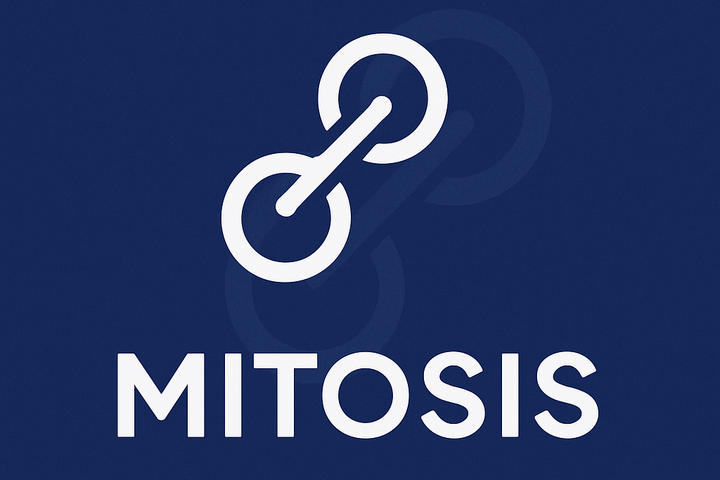Coinbase Launches Bitcoin Card with American Express: A Comprehensive Overview

In a groundbreaking move that bridges the gap between traditional finance and the burgeoning world of cryptocurrency, Coinbase has announced the launch of the Coinbase One Card in partnership with American Express. This innovative credit card allows users to earn Bitcoin rewards on their everyday purchases, marking a significant milestone in the integration of digital currencies into mainstream financial products. This article delves into the details of this launch, the competitive landscape of credit card rewards, the role of American Express in the crypto space, and the potential risks and caveats for users.
The cryptocurrency market has seen exponential growth over the past decade, with Bitcoin leading the charge as the most recognized digital currency. As more consumers become interested in cryptocurrencies, financial institutions are beginning to adapt their offerings to meet this demand. The Coinbase One Card is a prime example of this trend, allowing users to earn Bitcoin rewards, thereby incentivizing the use of cryptocurrency in everyday transactions.
1. Competing with Traditional Credit Cards: BTC Cashback and Rewards
1. The Rewards Structure
The Coinbase One Card offers an attractive rewards structure that allows users to earn between 2% and 4% back in Bitcoin on all purchases. This competitive offering positions the card favorably against traditional credit cards, which typically provide cash back or points that can be redeemed for various rewards.
- 2% to 4% Bitcoin Back: The exact percentage of Bitcoin earned back depends on the type of purchase and the user's subscription tier. This tiered rewards system encourages users to engage more with the card and maximize their Bitcoin earnings.
- Comparison with Traditional Cards: Many traditional credit cards offer cash back rates ranging from 1% to 3%. The Coinbase One Card's Bitcoin rewards can be particularly appealing to crypto enthusiasts who are looking to accumulate more Bitcoin through their everyday spending.
2. Subscription Requirement
To access the Coinbase One Card, users must subscribe to Coinbase One, a premium service that provides various benefits, including zero trading fees and enhanced staking rewards.
- Cost of Subscription: The monthly fee for Coinbase One is 29.99,whileamorebasictierisavailablefor4.99 per month. Users must weigh the benefits of the card against the subscription cost to determine if it is a financially sound decision.
- Value Proposition: For frequent users of Coinbase and those who regularly spend on their credit card, the potential Bitcoin rewards may outweigh the subscription costs. However, casual users may find it challenging to justify the expense.
3. Market Positioning
By integrating Bitcoin rewards into a credit card, Coinbase aims to attract both crypto enthusiasts and traditional consumers looking for innovative financial products.
- Target Audience: The card is designed for individuals who are already engaged in the cryptocurrency ecosystem, as well as those who are curious about Bitcoin but have yet to invest. This dual approach could help Coinbase expand its user base significantly.
- Disruption of the Credit Card Market: The introduction of the Coinbase One Card could disrupt the traditional credit card market, prompting other financial institutions to explore similar offerings. As competition increases, consumers may benefit from better rewards and lower fees.
2. Amex’s Role in Crypto: A New Precedent for Mainstream Banks
1. Partnership Significance
American Express's collaboration with Coinbase marks a pivotal moment for mainstream banks entering the cryptocurrency space.
- Legitimization of Crypto: This partnership not only legitimizes the use of crypto in everyday transactions but also sets a precedent for other banks to follow suit. As more financial institutions recognize the potential of cryptocurrency, we may see an increase in crypto-related products and services.
- Innovation in Financial Services: The collaboration between Coinbase and American Express highlights the potential for innovation in the financial sector. By combining traditional banking with cryptocurrency, both companies are paving the way for new financial products that cater to the evolving needs of consumers.
2. Consumer Trust
The backing of a well-established financial institution like American Express may enhance consumer confidence in using cryptocurrency for transactions.
- Brand Recognition: American Express is a trusted name in the financial industry, and its involvement in the Coinbase One Card may encourage more consumers to explore cryptocurrency. This trust can help alleviate concerns about the volatility and risks associated with digital currencies.
- Broader Acceptance: As more consumers become comfortable using cryptocurrency for everyday transactions, we may see broader acceptance of digital currencies in various sectors, further legitimizing their use.
3. Future Innovations
The partnership may pave the way for further innovations in the financial sector, as banks and fintech companies explore new ways to integrate cryptocurrency into their services.
- Potential for New Products: The success of the Coinbase One Card could inspire other financial institutions to develop similar products, leading to a more competitive market for crypto rewards cards.
- Integration with Other Financial Services: As the cryptocurrency landscape evolves, we may see more integration between traditional banking services and digital currencies, creating a seamless experience for consumers.
3. Risks and Caveats: Are There Pitfalls for Users?
While the Coinbase One Card presents exciting opportunities for earning Bitcoin rewards, users should be aware of potential risks and pitfalls associated with cryptocurrency rewards.
1. Volatility of Cryptocurrency
One of the primary risks associated with earning Bitcoin rewards is the inherent volatility of the cryptocurrency market.
- Fluctuating Value: The value of Bitcoin can fluctuate significantly, which may affect the actual value of rewards earned. For example, if a user earns 100worthofBitcoinrewardstoday,thatvaluecoulddropto50 within a short period due to market volatility.
- Long-Term Value Considerations: Users should consider whether they believe in the long-term value of Bitcoin. While some may view it as a store of value, others may see it as a speculative asset. This perspective will influence how users perceive the value of their rewards.
2. Subscription Costs
Users must consider the monthly subscription fee for Coinbase One.
- Cost-Benefit Analysis: If the rewards earned do not exceed the cost of the subscription, users may find themselves at a financial disadvantage. It is essential for users to calculate their potential earnings based on their spending habits to determine if the card is worth it.
- Potential for Overspending: The allure of earning Bitcoin rewards may encourage some users to spend more than they typically would, leading to potential debt accumulation. Users should exercise caution and maintain responsible spending habits.
3. Regulatory Concerns
As the cryptocurrency landscape evolves, regulatory changes could impact the functionality and acceptance of crypto rewards.
- Evolving Regulations: Governments around the world are still grappling with how to regulate cryptocurrencies. Changes in regulations could affect the usability of the Coinbase One Card and the rewards structure.
- Tax Implications: Users should also be aware of the tax implications of earning Bitcoin rewards. In many jurisdictions, cryptocurrency is treated as property for tax purposes, meaning that users may owe taxes on the value of the Bitcoin rewards they earn.
4. Limited Acceptance
While the card can be used anywhere American Express is accepted, the overall acceptance of cryptocurrency as a payment method is still limited compared to traditional currencies.
- Usability of Rewards: Users may find that they cannot easily spend their Bitcoin rewards in everyday transactions, limiting the practical value of the rewards earned.
- Merchant Adoption: The success of cryptocurrency rewards cards will depend on the willingness of merchants to accept digital currencies. As more businesses adopt cryptocurrency payment options, the usability of rewards will improve.
Conclusion
The launch of the Coinbase One Card in partnership with American Express represents a significant advancement in the integration of cryptocurrency into mainstream finance. By offering Bitcoin rewards on everyday purchases, Coinbase is positioning itself as a leader in the evolving financial landscape.
While the potential for earning Bitcoin rewards is appealing, users should carefully consider the associated risks and costs. The volatility of cryptocurrency, subscription fees, regulatory concerns, and limited acceptance are all factors that users must weigh before committing to the Coinbase One Card.
As the financial landscape continues to evolve, this initiative could serve as a catalyst for further innovation and acceptance of cryptocurrency in everyday transactions. The partnership between Coinbase and American Express may inspire other financial institutions to explore similar offerings, ultimately leading to a more integrated and accessible financial ecosystem for consumers.
Additional Resources
For those interested in learning more about the Coinbase One Card, Bitcoin, and the broader cryptocurrency landscape, the following resources may be helpful:



Comments ()